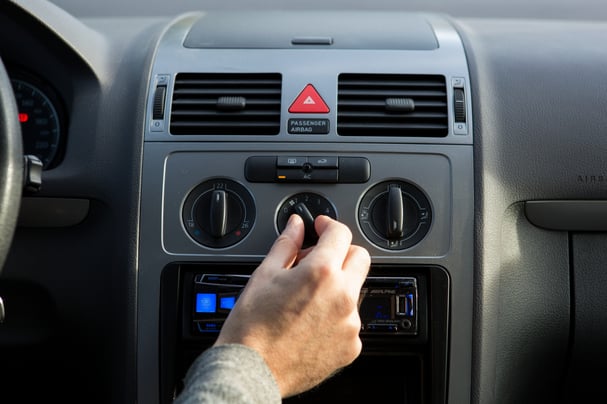The greening of the world's car fleet is happening rapidly. JD Power Consultancy estimates that a third of emission cuts by 2020 will come from improving petrol and diesel engines, and 14% from miles driven in electric vehicles. Consumers are increasingly demanding energy-efficient vehicles, both for environmental and economic reasons. This is changing how the whole automotive industry works.

Electric Cars
Electric vehicles are one of the most important ways to reduce motoring costs, reduce the amount of fossil fuels used in transport and reduce the amount of CO2 emission in transport, improve air quality and reduce global warming. Expect battery-powered vehicles to be 10% of the market by 2020.
Much of government economic stimulus packages for the auto industry are linked to reduction of Fuel consumption and CO2 emission which is then further linked to Electro Mobility and Electric vehicles (EV's).
Batteries are going to be one of the biggest green tech businesses – powering not only phones and other small devices, but also cars, trucks, buses and just about any large piece of equipment that does not have a permanent electricity connection.
However, electrical vehicle leads to fire or explosion, especially when damaged in a crash because of its high energy density and overheat. Therefore, automakers need to fully understand how varying operational limits affect the life of battery systems through extensive testing and modeling, followed by developing sophisticated algorithms to track and predict various parameters, such as state of charge and state of health through the life of the battery.
To ensure quality, TÜV Rheinland provides type testing and certification for vehicles and components according to EC Directives, EU Regulations and UNECE Regulations with e/E mark certification. For Electrical Vehicles the UNECE-R100 is defining the requirements in addition to the EMC requirements defined in UNECE-r10.
We also provide testing and certification for charging systems and their related components, such as connectors and cables. Our testing services include EMC, UL standards, field labeling, IEC/DIS 61980-1/-2/-3, V2H systems and grid connectivity testing. In addition to our TÜV mark license, we issue CB reports and certificates based on IEC 61851 series, as well as cTÜVus and TÜ mark license for the North American market.
We also issue certifications for batteries and capacitors used in EVs through our Battery Testing Laboratory at our Kansai Technology Assessment Center (KTAC), the largest laboratory in Japan dedicated to Rechargeable Energy Storage Systems (REESS). We provide testing services using the latest facilities and the highest level of specialist knowledge.
Alternative fuels
With increasing federal clean air regulations and restrictions, more and more companies have made the switch to cleaner energy sources. One of the most popular alternative fuel sources is CNG, or compressed natural gas. Used in a number of applications, CNG is known for its low emissions and various other eco-friendly benefits.
According to the US Department of Energy’s Alternative Fuel Data Center, vehicles running on certain natural gases can reduce the life cycle of greenhouse gas emissions by 11%. Plus those with CNG fuel systems don’t generate evaporative emissions.
Hence, the automotive industry has already started taking the steps to ensure more environmentally friendly vehicles are produced.
TÜV Rheinland’s facility supports manufacturers in developing cleaner vehicles with comprehensive one-stop-shop CNG components testing services.
Our testing capabilities include external leakage testing and durability testing for component type approval. Our experts also perform Conformity of Production tests for such components.
What to Expect in the Future
Government regulations will perhaps play the strongest role in what modes of manufacturing will dominate in the near future. The current emissions standards are highly irregular throughout the world, so manufacturers that supply primarily different areas of the world will have to work to ensure that their products remain viable worldwide.
Can buyers make a difference? Can they actually help save the planet and change the automotive industry? Yes, they can! Many people today are buying hybrids and eco-friendly cars, however, some still believe they’re fairly expensive. Right now, yes, they are. But technology is advancing and things are constantly changing in the auto industry. As the demand goes up and increasingly more manufacturers are making hybrids, the cost will have to go down in order to survive this war that’s just starting to shape up.
For more information on our automobile testing solutions, please visit our website or contact us to speak to one of our experts.



